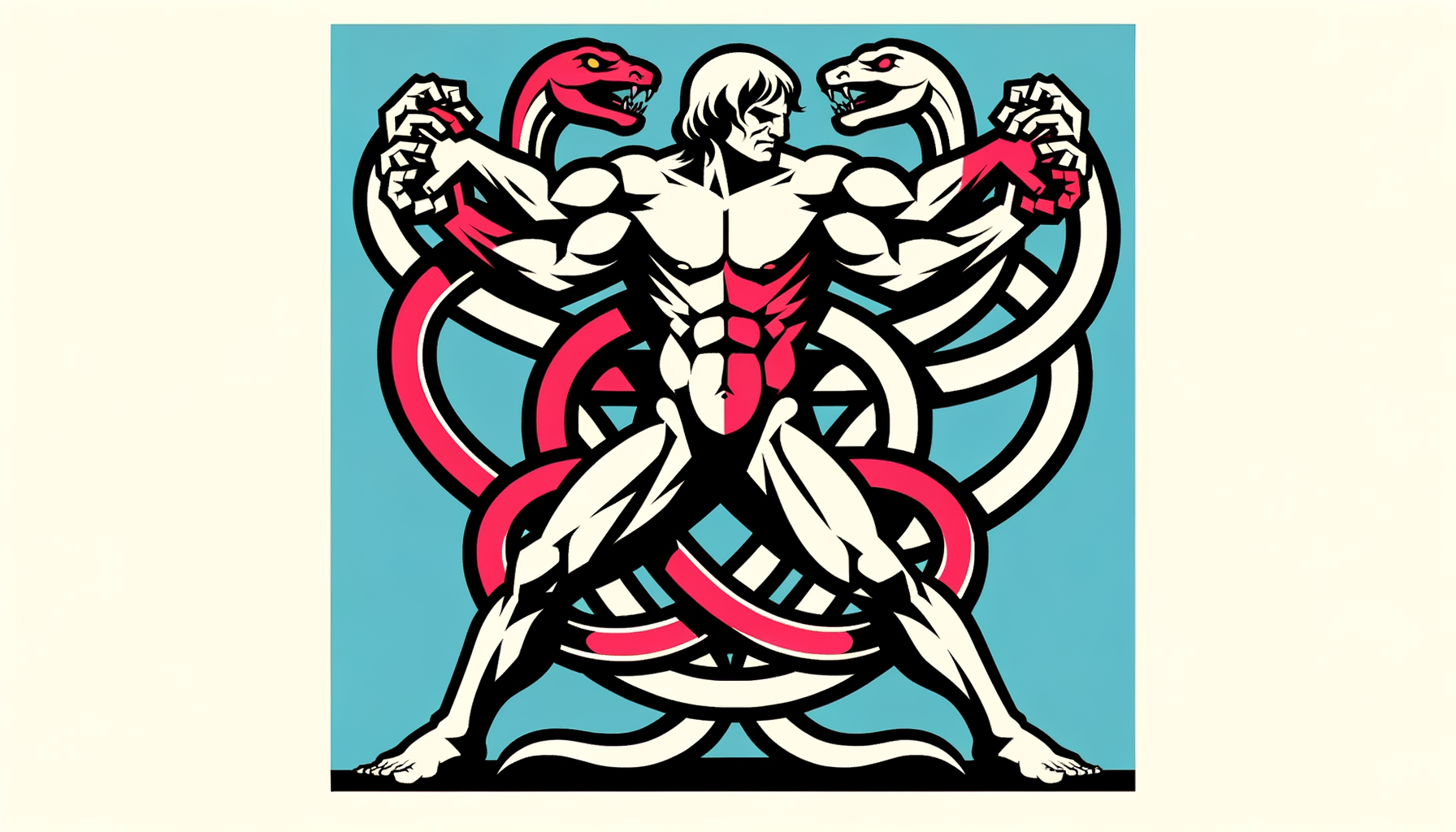Some stories are easier to write than others. And some? Well, some dig their heels in like a stubborn mule on a narrow Santorini path. They refuse to budge, no matter how hard you push or how much metaphorical sugar you dangle in front of them. For me, “that story” was about a breakup—mine, to be specific. Not just any breakup but the breakup. The one that left me feeling as gutted as a freshly cleaned sea bass.
I’ll admit it: writing this piece was excruciating. But, as it turns out, some of the greatest lessons hide in the most uncomfortable places. So, grab your baklava and your feelings because I’m about to dive into why this was the hardest thing I’ve ever written—and why sometimes wrestling with your inner Hydra is worth it.
Why Writing About Breakups Is Like Greek Tragedy
Breakups are inherently messy. You’re dealing with grief, ego, nostalgia, and—if your ex was anything like mine—a questionable playlist of love ballads that haunt you at every café. Writing about it? That’s a whole new level of chaos. You’re not just processing your emotions; you’re carefully laying them out like octopus tentacles on the table while the world judges the symmetry. Opa!
When I was assigned a piece about the long-term lessons of breakups, my first reaction was to balk. I wasn’t sure I could untangle the knot of feelings still tied up in that past relationship. And I certainly wasn’t sure if anyone would want to read about my failures in love, least of all when the wounds still felt embarrassingly fresh.
But here’s the thing: Greek philosophy teaches us that challenges are not merely obstacles; they’re invitations. Plato might call it the “recollection of truth.” I called it mortifying exposure therapy.
I sat down, turned on my laptop, and began the slow, painful process of revisiting a relationship I had tried very hard to file away in the dusty archives of my heart.
The Awe-Inspiring Art of Avoidance
Picture this: Me at a seaside taverna with my laptop, half a glass of red wine untouched because I’m too busy pretending I don’t have deadline-induced anxiety burning a hole in my stomach. I typed a sentence, deleted it. Typed another. Decided suddenly I should be learning how to clean my inbox. Or researching ancient Athenian courtship practices. Or literally doing anything but writing this article.
When you’re writing about something deeply personal, every word feels like it’s tied to a string and dragging a memory behind it. And my memory? It was stubbornly serving me the bloopers reel—the awkward fights, the missed signals, the time we tried to cook moussaka together and ended up burning both dinner and each other’s tempers. (Who knew béchamel sauce could be so divisive?)
I wanted to avoid every raw feeling, every embarrassing misstep. But avoidance doesn’t make the labyrinth any less complicated; it just makes the Minotaur hungrier.
Finding the Courage to Begin
One of the hardest parts about writing this piece was deciding how honest to be. Should I play it safe and focus on generic platitudes? “Breakups help you grow!” “Time heals all wounds!” Or should I let readers peek behind the curtain and see the grittier, unedited version of what real heartbreak looks like?
Reader, I chose honesty. Painful, squirm-in-your-seat honesty. Because if there’s one thing I’ve learned from Greek myths and Mediterranean grandmothers, it’s that there’s strength in vulnerability. Leonidas didn’t hold back at Thermopylae, and I wasn’t about to hold back now.
So I wrote about it all: the breakup text—a masterclass in stoic detachment—that floored me mid-conversation at a dinner party. The self-pitying phase where I devoured an unholy amount of spanakopita because vegetables wrapped in carbs seemed like emotional armor. The late-night existential spirals about whether I was destined to be one of those eccentric island uncles who loudly debates Aristotle with passing strangers.
Lessons Wrapped in Olive Leaves
Once I stopped fighting the story and started honoring it, the act of writing became—dare I say it—a little cathartic. Sure, there were still moments of doubt. (Will people think I’m bitter? Overly dramatic? Is anyone even that interested in my moussaka disputes?) But as I pieced together the narrative, I realized that every challenging moment came with a lesson wrapped inside, like a neatly folded dolma.
Here’s what I learned along the way:
- Love Doesn’t Define You, But It Teaches You: Relationships are a stage for growth. Sometimes, it’s about learning what you value; other times, it’s about discovering what absolutely doesn’t work for you (like béchamel sauce arguments).
- You’re Stronger Than You Think: Heartbreak feels insurmountable in the moment, like rolling a boulder uphill à la Sisyphus. But eventually, you realize you’re not just pushing the boulder—you’re building muscles.
- Don’t Romanticize the Red Flags: Hindsight is a ruthless but effective teacher. What once looked like charming quirks might, in retrospect, feel more like blinking warning signs on a weathered Greek cliffside.
- Pain Isn’t the Enemy; Avoidance Is: The most growth I experienced wasn’t from “moving on” but rather from facing the pain head-on and allowing myself to sit with it.
Writing Through the Wreckage
By the time I finished the article (three glasses of wine and too many deleted sentences later), I felt lighter. Don’t get me wrong—reliving all those moments wasn’t exactly a dance around the maypole. But it gave me clarity. Writing forced me to organize the mess of emotions collecting dust in the corners of my mind, and in doing so, I found a surprising sense of peace.
Maybe that’s the real power of storytelling, whether it’s a tale about Greek heroes or your own romantic disasters. It’s not about perfection. It’s about connection—about saying, “Here’s my mess. Does it look a little like yours?”
Because if I’ve learned one thing from pouring my heart onto the page, it’s this: No one escapes love unscathed. We all stumble, we all burn the metaphorical moussaka at least once. And sharing those stumbles might just help someone else find their footing.
The Final Takeaway
If you’re reading this, wondering whether you should tackle a story—or a breakup—that feels too raw, too vulnerable, too complicated, let this be your sign to do it anyway. Not because it’s easy, but because it’s meaningful.
Writing the hardest piece of my life didn’t just help me make sense of my own heartbreak. It reminded me that every experience, no matter how painful, has the potential to connect us, to teach us, and to remind us of the incredible resilience we carry within us.
And hey, if nothing else, it’s a great excuse to sip wine by the sea and call it “research.” Cheers to that.




















